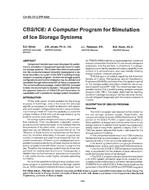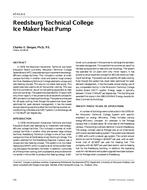Preferred room temperatures were determined for 16 male and 16 female college-age subjects who were naturally acclimatised to Singapore’s year-round hot and humid equatorial climate. Each subject participated in one comfort experiment lasting two and a half hours in a climate chamber. Preferred ambient temperature was determined by adjusting the climate chamber’s thermostat every 10 minutes according to the subject’s wishes. The subjects were clothed in a standard uniform and remained sedentary throughout the experiment. Skin temperatures at 14 sites, evaporative weight loss, and thermal sensations were also measured. The mean of the 32 individually determined preferred temperatures at the end of the two-and-half-hour exposure was 25.4 deg C, with a between-subjects standard deviation of 1.2K. Preferred mean skin temperature was 33.1 deg C and mean evaporative weight loss observed during the experiment was 21.0g.m-2.h-1. These findings are compared with those of similar experiments conducted in colder climatic zones and with different types of subjects. Statistically insignificant differences suggest that humans cannot be naturally adapted to prefer warmer ambient temperatures.
KEYWORDS: thermal comfort, tropics, climate chambers, experiment, temperature, Singapore, rooms, human body, physiology, ambient temperature, skin, dehydrating, measuring, comparing.
Citation: Symposium, ASHRAE Transactions, vol.97, Pt. 1, New York 1991
Product Details
- Published:
- 1991
- Number of Pages:
- 6
- File Size:
- 1 file , 840 KB
- Product Code(s):
- D-18624


